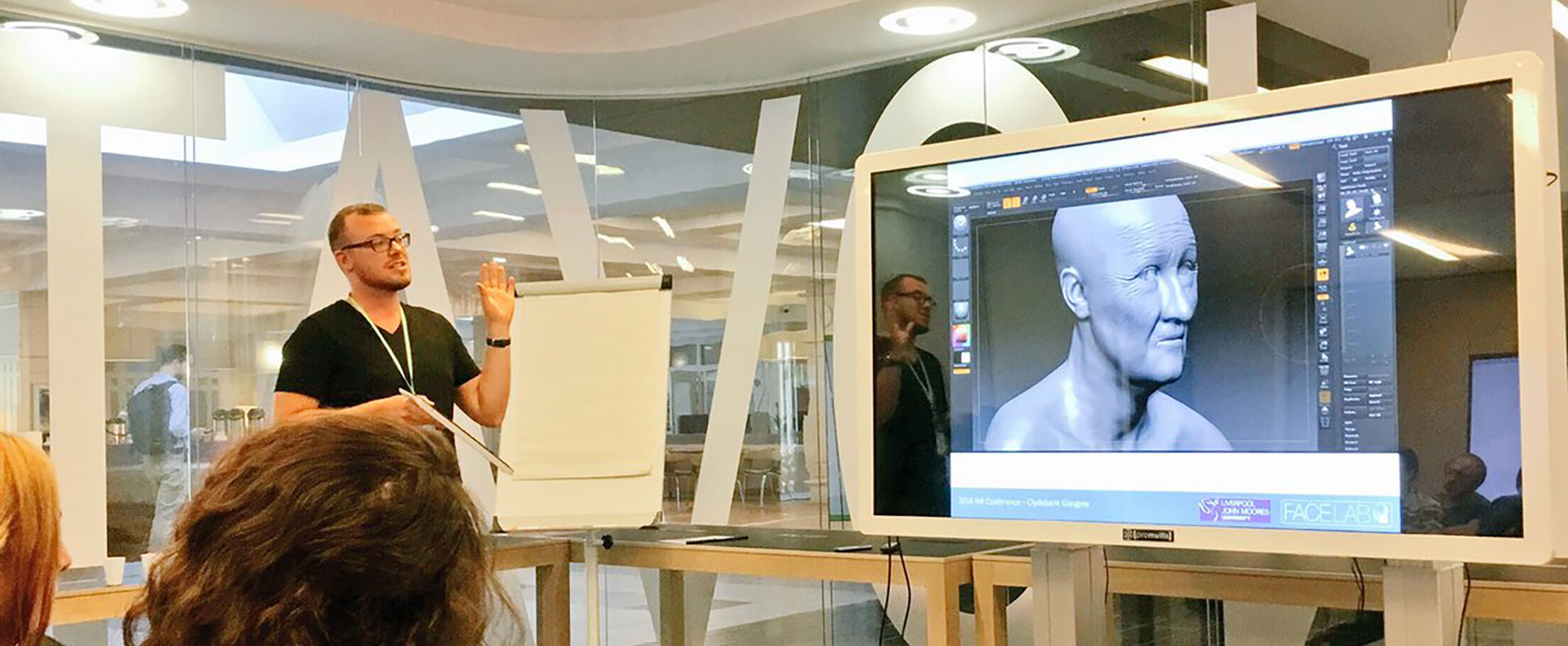
Liverpool John Moores University
Face Lab: pioneering craniofacial analysis
Face Lab is an interdisciplinary education, research and knowledge exchange unit at the interface of art and science, with a focus on individual and population facial identity, depiction and identification.
Over the last ten years, Face Lab has consistently demonstrated excellence and transformational change in research, education, public engagement and knowledge exchange. It has achieved extensive reach and influence – from within the university to global impact through forensic policy, humanitarian responses, ethics and social justice projects, cultural enrichment, professional training and art-science interactions.
Face Lab represents an exceptional example of an educational critical mass, employing novel technology and pedagogical approaches to perform research that translates to the classroom and the wider world with huge social impact.
In the digital heritage field, Face Lab has pioneered the creation of authentic digital avatars of international historical figures, and several projects have been innovative in the use of novel technologies and analyses alongside historical research.
In the forensic field, Face Lab contributes to national and international investigations, leading to the identification of bodies and indirectly to the criminal conviction of those responsible for murder.
In the university, Face Lab researchers established the distinctive Art in Science Master’s programme, focusing on interdisciplinary research between art and STEM subjects and training the next generation of global art-science practitioners.
The Face Lab team promotes national and international diversity and inclusivity, enhances cultural capital and media exposure in the North West, collaborates with artists on art-science interactions, collaborates with international scientists and curators on knowledge exchange projects and trains international professionals in craniofacial identification.